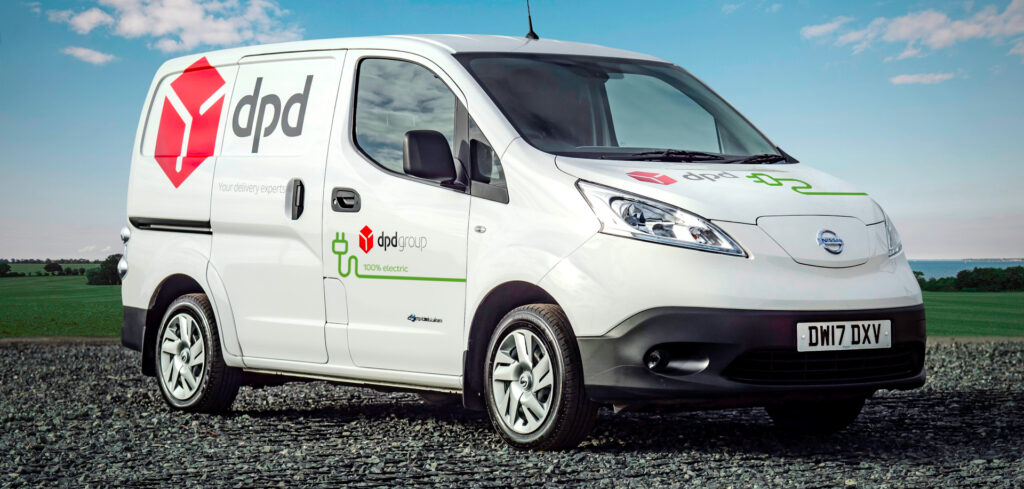DPD Group has joined the sustainability initiative EV100+, led by non-profit organization Climate Group, to transition its fleet of vehicles over 7.5 metric tons to zero tailpipe emissions by 2040.
EV100+ members are expected to submit, and regularly review, their roadmaps to 2040 and report annually to Climate Group on their progress. The commitment is based on the understanding that members will aim to source only renewable electricity and green hydrogen for recharging and refueling its medium- and heavy-goods vehicles by 2040.
The company will work to transition its fleet of medium- and heavy-duty vehicles (MHDVs) toward alternative powertrain technologies, notably electric and hydrogen. The company expects to increase its fleet of alternative powertrain technologies to 50% by 2030 and 100% by 2040. The company is already running two electric trucks in Switzerland; one e-truck is expected to save 90kg of CO2 per hundred kilometers covered compared to equivalent diesel-powered trucks, corresponding to 72 metric tons of CO2 saved per year.
According to Climate Group, MHDVs represent just 4% of all vehicles on the road globally but account for 40% of all road transportation emissions and a third of total transportation fuel use. These vehicles produced over 5% of total global CO2 emissions in 2019, predicted to increase to over 11% by 2050 if steps are not taken.
Sandra Roling, director of transport at Climate Group, said, “We’re very excited to launch EV100+ at this year’s Climate Week NYC. It’s a great demonstration of leadership from the founding members. MHDVs represent the final frontier of zero emission road transportation, and EV100+ will tackle the heaviest, most polluting vehicles across the world. Welcoming DPDgroup, one of the key players of delivery worldwide, as [an] active member of EV100+ represents a powerful lever of action in the fight against climate change.”
Jean-Claude Sonet, executive vice president in charge of marketing, communication and sustainability at DPD Group, said, “We are committed to sustainable delivery and have set ourselves a bold ambition to reach net zero by 2040. Yet success will depend on our ability to transition our medium- and heavy-goods vehicles to zero tailpipe emissions by 2040. All sectors must work together if society is to be meet global climate goals. We are therefore excited to work alongside other like-minded businesses to send a powerful message to both governments and manufacturers that we believe the future of trucking is zero emission.”


